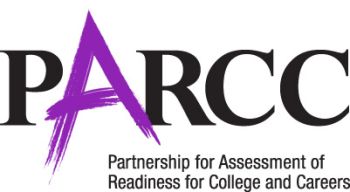As someone who researches the nuances of assessment data, policy proposals, and academic studies for a living, I have a great appreciation for the details. It’s the details – the finer, perhaps boring points of education policies – that determine how things actually happen in practice. Having a clear understanding of the details gives us a good sense of how plans on paper will actually work in the real world.
 Arguably one of the largest education initiatives in the United States today is the transition to Common Core State Standards. The standards go hand in hand with new assessments, called PARCC for short, that will better measure Tennessee students’ readiness for college and the workforce. Many individuals have raised questions about various aspects the Common Core State Standards and PARCC and rightly so – the finer details are important to understanding how both initiatives will work in practice.
Arguably one of the largest education initiatives in the United States today is the transition to Common Core State Standards. The standards go hand in hand with new assessments, called PARCC for short, that will better measure Tennessee students’ readiness for college and the workforce. Many individuals have raised questions about various aspects the Common Core State Standards and PARCC and rightly so – the finer details are important to understanding how both initiatives will work in practice.
Let’s explore the details of one dimension of Tennessee’s new PARCC assessment – data collection. Critics of PARCC have argued that the assessments will require Tennessee to collect more information on students than is collected through the current TCAP tests.
So without further ado here’s the simple fact: no additional data will be collected on students for PARCC that isn’t already being collected under current TCAP tests. In December 2013, the Tennessee Department of Education, in response to questions raised by the Senate Education Committee, put out this document which clearly shows that the exact same data will be collected for PARCC as has been collected for TCAP. This list of data points, which fits on one page, allows the state to ensure accuracy and reliability during our yearly assessment process. It also ensures that Tennessee is meeting specific reporting requirements to comply with state and federal law. Finally, it is this information, along with the actual assessment results (TCAP scores, TVAAS growth, college readiness information) that allows teachers the ability to provide tailored experiences for their students.
As I was writing this blog, I thought to myself – making the point that Tennessee will collect no additional data through PARCC is fairly simple. As I thought more, I asked myself “Are we missing the point?”
Before joining SCORE, I taught sixth- and seventh-grade social studies in Jacksonville, Florida. As a 23-year-old rookie teacher, one of the first (and most helpful) things handed to me was the data on students who were about to enter my classroom. The information I received was relatively broad stroke – overall reading and math scores along with some subscores that allowed me to get a general sense of students before I met them. Looking at this data was really helpful – I was able to gain an understanding of what my students struggled with and how I could make better decisions – about everything from selecting materials, how to match students based upon strengths and weaknesses, which parents I needed to reach out to, and which students I should prioritize my time with.
And the usefulness of the data didn’t stop there. Throughout the year, I used all kinds of formative assessments (pop quizzes, unit tests, bellringers) to get a sense of how students were performing in my class. I shared that information with parents and other teachers on my team so we could all work together to improve student learning.
In addition to my personal experience, research has something to say about the benefit of using data. One study by Faria, Heppen, et al. (2012) demonstrates that in urban schools there are meaningful links between teacher and principal data use and student achievement on state assessments in some grades and subjects. This study also found that school-level supports for data use, such as time to review and discuss data, professional development, and staff capacity, were also related to higher student achievement on state tests.
As the conversation about PARCC testing and data more broadly conceived continues, we must challenge ourselves to think about the benefits of using data for students and teachers. Christie Thompson of SCORE Prize winner Frank P. Brown Elementary, describes very well why educators want and need good data. “We need to know where we are, where we desire to go, and have a plan to get there. Data give us the details to formulate a plan,” she says. Every day across Tennessee, students, teachers, school leaders, and parents are using data to guide their work and achieve our collective goal – preparing students for the brightest future possible.
